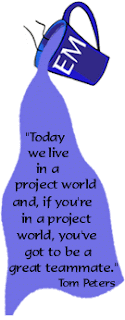
Here is a list of tips to help you get a good grade when you have to take a “timed essay” test:
Plan your time wisely. This first tip may not sound all that useful. But procrastination is probably the biggest reason why bright students sometimes get poor grades. Start early. You can also plan your time during the test itself. Your professor knows which paragraphs are harder to write, and will evaluate them accordingly. Does the question ask you to “evaluate”? If so, don’t fill your page with a summary. Likewise, if the question asks for “evidence,” don’t spend all your time giving your own personal opinions.
- Start with the larger essay questions, so that you answer them before you burn out or run out of time.
- If one essay question is worth 50% of the test score, spend 50% of your time on it.
- If you finish early, you can always go back and add more detail. (As long as your additions and changes are legible, your instructor will probably be happy to see signs of revision.)
- Answer the right question. Before you begin your answer, you should be sure what the question is asking. I often grade a university composition competency test, and sometimes have to fail well-written papers that fail to address the topic the student has been given.
- Collect your thoughts. Resist the urge to start churning out words immediately. If you are going to get anywhere in an essay, you need to know where you are going.
- Leave time to revise. Too often, the only revision students do is crossing out their false starts, or explaining their way out of a corner by adding to the end of their essay. Sometimes, in the middle of a difficult paragraph, students will glance back at the question, and get a new idea. They will then hastily back out of their current paragraph, and provide a rough transition like: “But an even more important aspect is…”. They continue in this manner, like a builder who keeps breaking down walls to add new wings onto a house.
- To handle this problem when it occurs, don’t automatically add to the end of an essay — write in the margins, or draw a line to indicate where you want to insert a new paragraph.
- Leave space to revise too — write on every other line and leave the backs of pages blank, so you will have room to make legible insertions if you need to.
- Obviously, if you are writing your test on a computer, you should just insert and rearrange text as you would normally.
- Revise your thesis statement If inspiration strikes while you are in the middle of an essay, and your conclusion turns out to be nothing like you thought it would be, change your thesisstatement to match your conclusion. (Assuming, of course, that your unexpected conclusion still addresses the assigned topic.
- SOURCE: http://chris.pirillo.com/tips-for-taking-timed-essay-exams/
- Image source: https://blogger.googleusercontent.com/img/b/R29vZ2xl/AVvXsEjIVl2uJ6h3X5MZvJNOyu7hckeWkKGmtgAL6aobmQTxIwWXonQhzCHemzDaP4fn0JbF-nLkD8ol7-wFEyUMzc1Rf3xZ89RpBN87x0G-bLBkfhf_ivsYYXRp_fnwhVYn8zpwyaCL3jRDoTw/s320/frustrated.jpg




